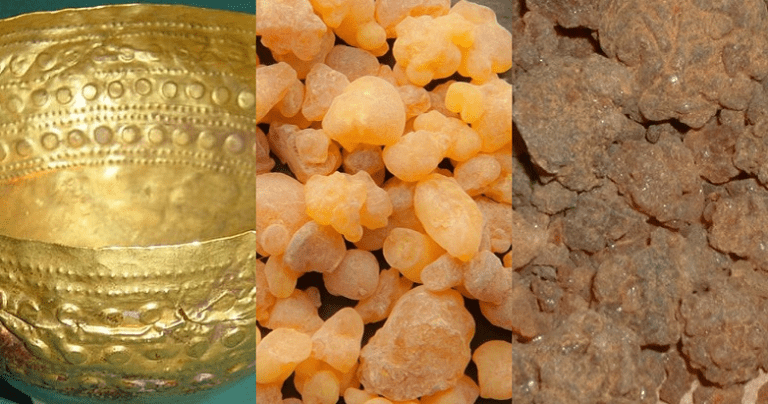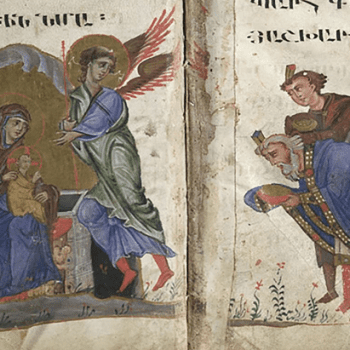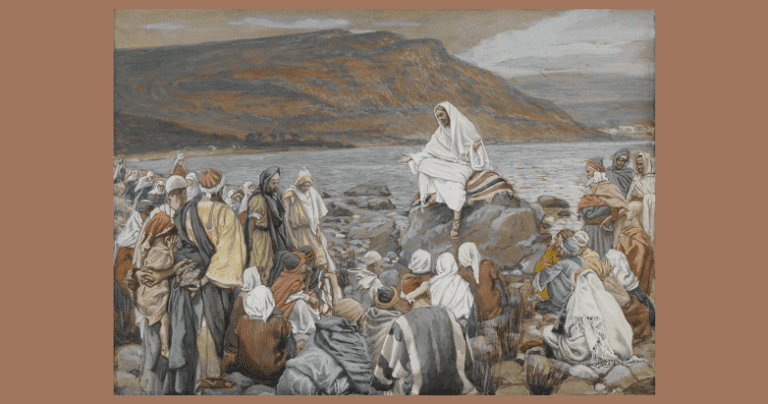
We pagans with God, God-With-Us, all of us, prostrate ourselves today in homage to him who is King, Anointed (Messiah, Christ), Ruler and Shepherd of God’s people, their Savior from their sins.
Matthew 2:1-12 for the Solemnity of the Epiphany of the Lord.
In Matthew’s Gospel, the earthly life of Christ starts abruptly.
Jesus was born in Bethlehem of Judea.
Then straightaway, magi from the east, pagans, came looking for him, asking in Jerusalem for his whereabouts.
Where is the newborn king of the Jews? We saw his star at its rising and have come to do him homage.
But the magi’s words greatly troubled King Herod and all Jerusalem.
And so, it seems Joseph and Mary had not yet told anyone about Jesus.
Thus, the magi were the first to break the news to Israel.
This Gospel tells of only a few things that Mary and Joseph already knew.
- The Holy Spirit had caused Mary to conceive virginally.
- The child would save his people from their sins.
- He would be God-with-us.
But Joseph and Mary kept all that to themselves.
The magi’s inquiry prompted Israel’s chief priests and scribes to search the old prophecies for the newborn’s birthplace.
And you, Bethlehem, land of Judah,
are by no means least among the rulers of Judah;
since from you shall come a ruler,
who is to shepherd my people Israel.
And going to Bethlehem, the magi found the child.
They prostrated themselves and did him homage.
Then they opened their treasures
and offered him gifts of gold, frankincense, and myrrh.
The Gospel does not say that Mary and Joseph ever prostrated themselves before the child or did him homage in any way.
The first to do so in this Gospel were pagans, magi from the east.
This is an epiphany of extremes moving toward each other.
One extreme is God, God-With-Us.
The other is a group of pagans.
Between the two extremes we find God’s people staying in their places.
Herod, the Jerusalemites, the chief priests and the scribes stayed in Jerusalem, while Joseph and Mary stayed in Bethlehem.
But from the two extremes, God and the pagans converged on Bethlehem.
God-With-Us came to birth in Bethlehem, and the pagans went there to find him.
Let’s note what this Gospel says God came to do in coming to be God-With-Us.
And let’s also note what the pagan magi did in going to be-with-God.
God-With-Us.
- God has come to be with us.
- To save us, to save his people from their sins.
- To be our king, ruler and shepherd.
Pagans-With-God.
- That can be a description of being God’s people: pagans-with-God.
- Even if we are God’s people, perhaps we have more sins than some pagans have.
- Whatever the case may be, this Gospel shows that real pagans were the first who prostrated themselves in homage to God-With-Us.
- Let’s be disciples of their example.
Today’s Gospel is an epiphany of how to see and celebrate the Mass, the Eucharist, as a two-way street connecting two extremes.
One side of the street runs from God to us.
God-With-Us bringing on earth peace among people with whom he is pleased.
The other side runs from us to God.
Glory to God in the highest.
Jesus fulfills both directions of the two-way street.
In his Eucharistic Body and Blood, he gives us to eat, drink and obey all that he is and all that he does.
- He gives up his Body for the glory of God the Father and for us, and he bids us do the same: Do this in memory of me.
- He pours out his Blood for the glory of the God the Father and for the forgiveness of our sins, and he bids us do the same: Do this in memory of me.
The Mass, the Eucharist, is always the epiphany of this new two-way street, this new and eternal covenant.
You shall love the Lord your God
with all your heart,
and with all your soul,
and with all your mind.
This is the great and first commandment.
And a second is like it,
You shall love your neighbor as yourself.
On these two commandments depend all the law and the prophets. (Matthew 22:37-40)
Glory to God in the highest
and on earth peace among people
with whom he is pleased.
Turn. Love. Repeat.












